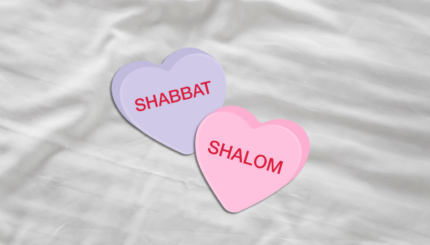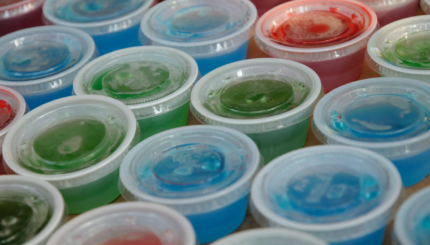The Bible does not specifically list those labors that are prohibited on the Sabbath, although it alludes to field labor (Exod. 34:21; Num.15:32-36), treading in a winepress and loading animals (Neh. 13:15-18), doing business and carrying (Isa. 58:13; Jer. 17:22; Amos 8:5), traveling (Exod. 16:29-30), and kindling fire (Exod. 35:2-3) as forbidden work.
Note: Jews observe in a variety of ways. This article explains the most traditional and strict interpretations of what is and is not permitted on Shabbat.
Beyond Torah: What Can and Can’t We Do?
In the Mishnah, the Rabbis enumerated 39 major categories (with hundreds of subcategories) of labor that were forbidden (avot melachah) based on the types of work that were related to the construction of the Tabernacle in the wilderness, which ceased on the Sabbath (Shab. 7:2).
Activities that cannot be performed on the Sabbath are basic tasks connected with preparing the showbread of the Temple (sowing, plowing, reaping, binding, threshing, winnowing, selecting, grinding, sifting, kneading, baking), work related to making the coverings in the Tabernacle and the vestments used by the Kohanim (shearing sheep, bleaching, carding, dyeing, spinning, stretching material, making two loops — the beginning of sewing, threading needles, weaving, separating, tying a knot, untying a knot, sewing, tearing), activities concerned with writing and the preparation of parchment from animal skin (trapping or hunting, slaughtering, skinning, curing hides, scraping pelts, marking out a hide to make ready for cutting, cutting), writing, erasing, constructing (building, demolishing), kindling a flame (lighting or extinguishing), carrying (from private to public domain, and vice versa), and putting the finishing touches to a piece of work already begun before the Sabbath.

Help us keep Jewish knowledge accessible to millions of people around the world.
Your donation to My Jewish Learning fuels endless journeys of Jewish discovery. With your help, My Jewish Learning can continue to provide nonstop opportunities for learning, connection and growth.
The Rabbis decreed that one not only should avoid forbidden acts but also must not do anything that (1) resembles a prohibited act or could be confused with it, (2) is a habit linked with a prohibited act, or (3) usually leads to performing a prohibited act.
The rabbinic enactment of measures to prevent these possibilities was termed “putting a fence around the Torah” (Avot 1:1). For example, ripping up a piece of paper was forbidden since it resembles “cutting to shape” or could be confused with it.
Similarly, agreeing to buy something was prohibited, because most agreements are confirmed in “writing”; climbing a tree is forbidden, because it may lead to breaking twigs or tearing leaves, which could be construed as “reaping” (i.e., separating part of a growing plant from its source). Other activities that by extension are prohibited on the Sabbath include the following:
- Adding fresh water to a vase of cut flowers (sowing — any activity that causes or furthers plant growth).
- Making a bouquet of flowers (making a sheaf).
- Separating good fruit from spoiled fruit (winnowing, selecting, sifting).
- Brushing dried mud from boots or clothes (grinding).
- Cutting hair or nails (shearing sheep-removing outer covering of a human or animal).
- Applying makeup (dyeing).
- Braiding hair (weaving).
- Drawing blood for a blood test (slaughtering).
- Rubbing soap to make lather, applying face cream, polishing shoes, using scouring powder for utensils or other surfaces (scraping-smoothing the surface of any material by grinding, rubbing, or polishing).
- Sharpening a pencil (cutting to shape-altering the size or shape of an item to make it better for human use).
- Painting, drawing, typing (writing, making durable marks on a durable material).
- Tearing through lettering on a package (erasing).
- Opening an umbrella or unfolding a screen (building).
- Smoking a cigarette, using the telephone (kindling a fire).
- Switching off an electric light (extinguishing a fire).
- Setting or winding a clock or watch (finishing off).
- Wearing eyeglasses not permanently required (carrying from private to public domain and vice versa).
Muktzeh: Things You Can’t Even Touch
Any items that may not be used on the Sabbath may not even be handled on that day, lest one unintentionally perform one of the forbidden types of work. These objects are termed muktzeh, meaning to “set aside” or “store away.” Among the many things considered muktzeh are money and checks; scissors, hammers and saws; pencils and pens; battery-operated toys and flashlights; radios and CDs; telephones and computers; and certain religious objects such as shofar, tefillin, and lulav. Even the Sabbath candlesticks are muktzeh and thus should not be touched on the Sabbath after the candles have been lit.
Even if not strictly classified as forbidden work, certain “mundane matters” should be avoided on the Sabbath. These include weekday chores (such as packing suitcases and rearranging furniture, which are not in keeping with enjoyment of the restful spirit of the Sabbath), opening mail, and discussing business issues or matters of everyday concern. One is forbidden to even think about or make plans for the week ahead, such as preparing equipment, mapping out a route, readying a briefcase for the next day, or setting the table for a party on Saturday night.
Based on Isaiah’s exhortation that one “honor it (the Sabbath) by not doing your usual ways” (Isa. 58:13), the Rabbis recommended that a person should even walk differently on the Sabbath, avoiding the long strides and rushing about that characterize the pace of most people on weekdays.
Then What Can We Do?
For an activity to be considered as work forbidden on the Sabbath, the violation must be intentional. Therefore moving a chair from one place to another is permissible, even though it may produce an impression on the ground. Similarly, walking on the grass is allowed, even though this may result in some of it being crushed underfoot and thus technically constitute the prohibited activity mentioned above or the forbidden cutting of blades of grass.
One has not violated the Sabbath as long as the original purpose was solely to move the chair or to walk on the grass. In contrast, one is not permitted to engage in a task that always results in forbidden work. Thus washing oneself on a lawn is prohibited because it inevitably will result in watering the grass, which is forbidden on the Sabbath.
The Rules on Fire!
In addition to the general forbidding of all manner of work on the Sabbath, there is a special prohibition against making a fire (Exod. 35:3). The Rabbis considered this to include everything that pertains to the kindling of light, even if no actual work is involved. In modern times, there is a controversy regarding whether the switching on of electric lights and appliances is equivalent to making a fire.
There are two reasons to think that switching on an electric light may not be considered kindling. First, switching on a light does not create electric power; the power exists already. Second, there is no combustion in the filament of an electric light. Nevertheless, Orthodox Jews do not use electric appliances on the Sabbath, believing that the prohibition against kindling a fire was not based on the physical effort involved in rubbing two stones together to produce a spark but rather on the thought and planning that resulted in its generation.
For the Hazon Ish, the activation of an electric current and its transmission to sources of power, heat, and light that is produced by turning on a switch is forbidden because it falls under the category of “building” — intentionally causing something to happen. An exception is the refrigerator, which may be opened and closed because any electric current that this produces is incidental and without conscious intent. However, many observant Jews unscrew the refrigerator bulb for the Sabbath.
Lights that have been kindled before the Sabbath, such as the Sabbath candles, are allowed, as are an oven for keeping previously cooked food warm and a burner to keep water warm for coffee or tea. Similarly, it is permitted to leave an electric appliance running during the Sabbath and to use a timer to automatically turn an appliance on or off, as long as the timer is set before the Sabbath begins.
One mechanism to ease the difficulty of complying with the prohibition against work on the Sabbath was the concept of the Shabbos goy — a non-Jew hired by an observant family to perform certain activities forbidden to Jews on the Sabbath, such as starting a fire and turning lights on and off. However, the proliferation of electronic timers has virtually eliminated the need for the Shabbos goy.
Reprinted with permission from The JPS Guide to Jewish Traditions, published by the Jewish Publication Society.
Sign up for My Jewish Learning’s RECHARGE, a weekly email with a collection of Shabbat readings and more to enhance your day of rest experience.



